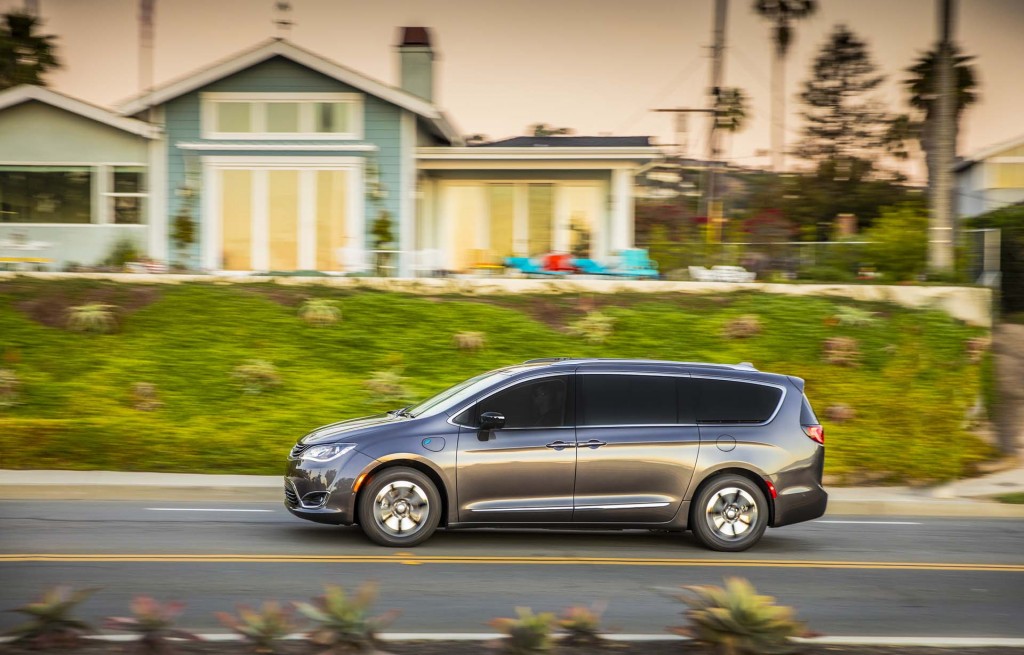Toyota made a strong return to the Canadian plug-in electric vehicle market in June, selling 144 Prius Prime plug-in hybrids.
The tally is all the more remarkable as the vehicle has so far launched only in Quebec. Why? That province is the home of Canada’s sole zero-emission vehicle mandate, patterned on California’s.
Depending on the geographic distribution of June’s Chevy Volt sales, the Prius Prime might have even outsold it in La Belle Province.
READ THIS: Quebec passes Canada's first zero-emission vehicle rule, to start in 2018
Toyota has sold about 100 Prius liftbacks per month in Quebec recently, and we'll learn the ratio of Prius liftback to Prius Prime sales when June’s vehicle registration data arrives.
It would not be surprising if the Prius Prime “cannibalized” many of its cousin’s sales, however, as the $4,000 point-of-sale rebate in the province means it is competitively priced against the conventional hybrid.
From Toyota’s website, the base Prius liftback has an all-in price of about $29,400 while the Prius Prime starts near $35,200 ($31,200 post-rebate) while the Prius liftback Technology package comes in around $32,600.

Plug-in electric car sales in Canada, June 2017
The Prius Prime should quality for a rebate of almost $7,400 in Ontario, which would in fact make it cheaper than the regular hybrid.
The purchase prices would probably run on the order of $29,000 for the Prius Liftback and $27,200 (post-rebate) for the Prius Prime, raising the question of whether anyone would purchase the regular hybrid.
(Consumers needing more seating or trunk space could just as easily purchase the RAV4 Hybrid crossover utility vehicle or Prius V wagon, instead.)
DON'T MISS: U.S. plug-in electric car sales for June: Volt passes Prius Prime, Bolt EV rises again
This cost competitiveness could actually be slowing the Prius Prime’s rollout across Canada, as the company needs to ensure it can handle demand as it expands to other provinces.
The Chevy Volt won its umpteenth monthly Canadian plug-in electric vehicle sales title in June, selling 347 units, down slightly from 404 in May.
GM has reported 1,998 sales at the halfway point of the year, so an annual total of 4,000-sale year may be in reach. (Much may depend on whether Volt buyers are cross-shopping the Prius Prime, and how quickly Toyota expands the Prime’s availability.)

First 2017 Chevrolet Bolt EV in Canada (photo by owner Joe Winkfein)
The Chevrolet Bolt continued its steady progress, selling 169 versus the prior month’s 176, and is on pace to dethrone the Tesla Model S as this year’s best-selling battery electric vehicle. (The Tesla Model S held this title in 2013, 2015 and 2016, its reign interrupted by the Nissan Leaf in 2014.)
As for the first-generation Nissan Leaf, it continued its consistent ways with 125 sales in June, level with its five-month average of about 130 units per month.
The Mitsubishi i-MiEV sold a further 6 units in Canada in June. A company representative indicated production will wind down in 2017, with the newest member of the increasingly hyphenated Renault-Nissan-Mitsubishi partnership returning to the Canadian electric vehicle market in 2018 with the Outlander PHEV.
CHECK OUT: Plug-in Electric Car Sales in Canada for 2016: cresting Everest
Also in June, Canadian electric car start-up ElectraMeccanica shipped its first Solo commuter vehicle.
Company founder Jerry Kroll ran for the Green Party in British Columbia’s recent provincial election, and though he didn’t win, the Greens now hold the balance of power in the legislature.
Perhaps that will prove to be a good omen for the firm.

2017 Toyota Prius Prime Premium
As usual, Ford C-Max Energi, Ford Fusion Energi and Hyundai Sonata PHEV sales are not provided by their makers.
As conveyed by a Ford representative:
"I have looked into this and unfortunately we are not inclined to provide this level of detail for Canada. The numbers are very small, as you might imagine."

2017 Chrysler Pacifica Hybrid
May Registration Round-up
May was Canada’s best-ever month for plug-in electric vehicle sales in Canada, buoyed by the debuts of the Chrysler Pacifica (plug-in) Hybrid minivan and the Hyundai Ioniq Electric.
The Pacifica Hybrid ramped up to 128 units in June, enough to beat the 112 sales of the Tesla Model X.
In its first month of availability, Hyundai sold 108 Ioniq Electrics, nipping past the 105 sales of the Tesla Model S.
These other vehicles’ achievements mean that the Model S was relegated to seventh (!) place behind the Volt, Bolt, Pacifica PHEV, Leaf, Model X and Ioniq Electrics in May sales.

2017 Toyota Prius Prime, Catskill Mountains, NY, Nov 2016
Given that Tesla focuses on North American deliveries in the last month of each quarter, June’s results will likely be a different story.
Kia sold 56 Soul EVs in May, a modest rise, while Ford Focus Electric sales almost doubled month-over-month to 50 units.
Continuing with the mass-market brands, the difference between reported sales and vehicle registrations suggests 34 used Nissan Leafs were imported into Canada; 4 Fiat 500e compliance cars also emigrated from California.
Another Chevy Spark was registered in Canada as well.
Among luxury brands, the A3 e-Tron sold a best-ever 65 units, while Porsche sold 50 Cayenne S-E Hybrids.
![2016 Volvo XC90 T8 plug-in hybrid [photo: Gary Renick, Twin Cities region] 2016 Volvo XC90 T8 plug-in hybrid [photo: Gary Renick, Twin Cities region]](https://images.hgmsites.net/lrg/2016-volvo-xc90-t8-plug-in-hybrid-photo-gary-renick-twin-cities-region_100546922_l.jpg)
2016 Volvo XC90 T8 plug-in hybrid [photo: Gary Renick, Twin Cities region]
Volvo managed 50 XC90 T8 "Twin Engine" plug-in hybrid SUVs while Mercedes moved 4 S550e plug-in sedans and 7 GLE550e plug-in SUVs.
Cadillac continued winding down its ELR inventory, selling another unit, while BMW sold 17 i3 hatchbacks, 9 i8 coupes, 20 X5 SUVs, 9 330e sedans and 2 740e luxury plug-ins.
BMW registered 6 Mini Countryman plug-in hybrid wagons in preparation for that car's official launch on June 24.
Volkswagen registered 8 e-Golfs in preparation for the already-sold-out allocation of 250 longer-range 2017 electric cars, before the arrival of model year 2018 e-Golfs in the fall.
_______________________________________












